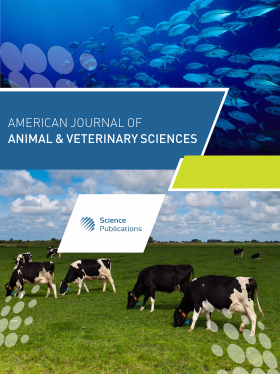Probiotics in Industrial Poultry Farming
- 1 Department of Veterinary Medicine and Biotechnology, Kuzbass State Agricultural Academy, Kemerovo, Russia
Abstract
In the conditions of industrial production, the problem of growing poultry with increased resistance to various diseases is relevant because the birds are exposed to various stress conditions. Traditionally, disease prevention is carried out through the use of vaccines, chemical pharmaceuticals, and antibiotics. The global use of therapeutic drugs contributes to the emergence of resistant strains of microorganisms and a decrease in the effectiveness of treatment; some of them have an immunosuppressive effect. The article presents the results of research on the effect of the preparation "Lactobacillus plantarum, Enterococcus faecalis, and Propionibacterium freudenreichii ssp." on the immune status, growth rate, and safety of experimental stock in broiler chickens. Studies were carried out on 150 one-day-old Ross-308 broiler chicks that were divided into three groups of 50 birds. The control Group (G3) was fed a standard ration based on the phases of growth, while the experimental Groups (G1 and G2) were supplemented with probiotics at different doses in the feed. The experiment was designed to last for 41 days. In the 3rd week, the average live weights of G1 and G2 broiler chickens exceeded those of G3 by 5.5 and 4.1%, respectively. In the 6th week, G1 and G2 broiler chicks had average live weights that exceeded those of G3 by 7.7 and 7.4%, respectively. The survival rates of the flocks in G1 and G2 were 4 and 2% higher, respectively than in G3. The average titers for Newcastle Disease and infectious bronchitis viruses in G1 were 314.9 and 53.5% higher, respectively than in G3, while in G2 they were 3.7 and 21.8% lower, respectively. For infectious bursal disease, G1 and G2 exceeded the control group by 74.2 and 6.4%, respectively. The meat yield of G1 and G2 was higher at 17.2 and 9.1%, respectively, compared to G3. Probiotics have shown many beneficial properties, including the ability to improve immunity, gut structure, and gut barrier function in broilers. These factors can improve digestion and absorption, ultimately increasing the quality and safety of products.
DOI: https://doi.org/10.3844/ajavsp.2023.1.8

- 4,446 Views
- 3,280 Downloads
- 11 Citations
Download
Keywords
- Probiotic
- Broiler Chickens
- Immune Status
- Growth Rate
- Industrial Poultry
